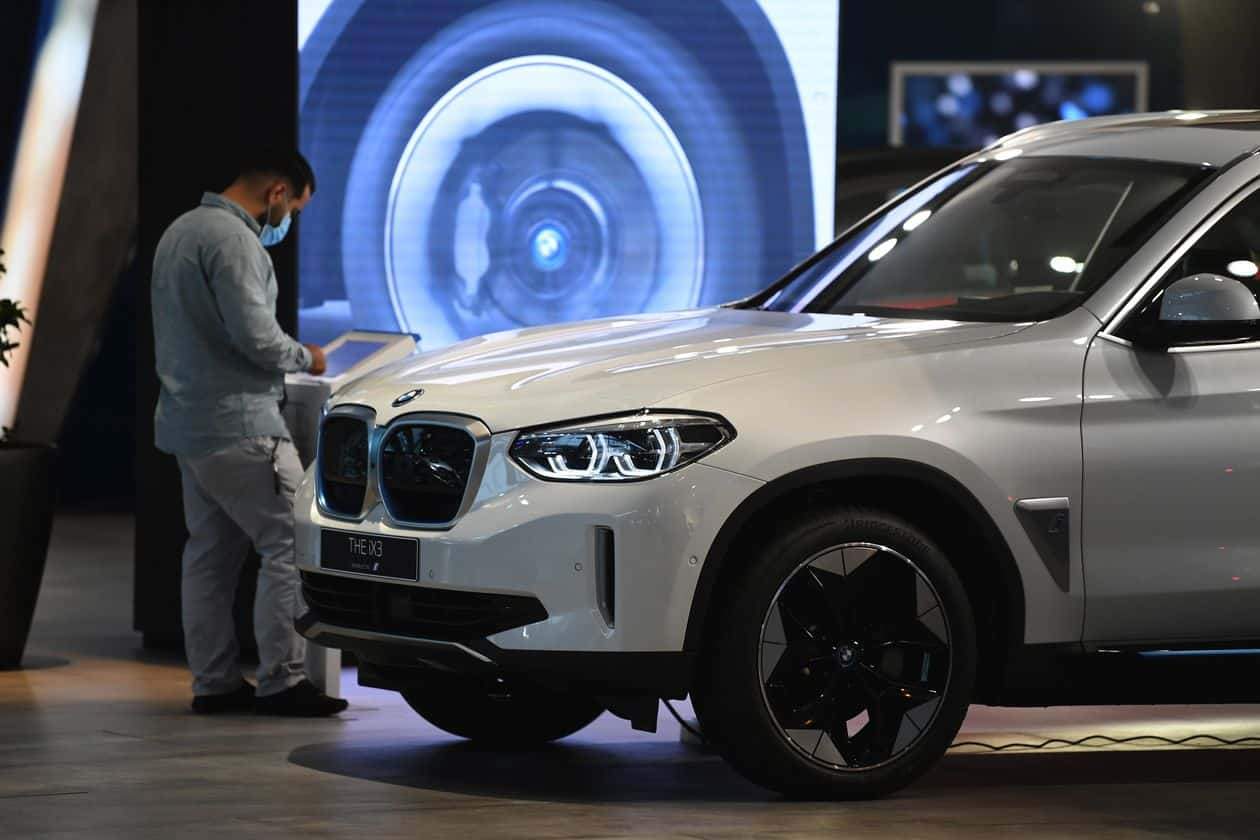How Europe Became the World’s Biggest Electric-Car Market—and Why It Might Not Last

Europe is buying electric vehicles at a record pace and has overtaken China as the world’s biggest EV market, as consumers are encouraged by government subsidies and dozens of new cars and hybrids.
The continent’s share of global new electric car sales nearly doubled to 43% last year, while China and the U.S. lost market share.
But Europe’s surge relies heavily on government incentives doled out during the pandemic, and analysts warn the momentum could be reversed if and when that support is withdrawn. Most government EV subsidies are limited in scope and due to expire by the end of this year.
“The market is extremely sensitive to government and company discounts,” said Arndt Ellinghorst, auto analyst at Bernstein Research. “Once subsidies are taken away EV sales will collapse by 30-40% at least for one or two quarters.”
Without the subsidies, EVs are still considerably more expensive than equivalent combustion-engine vehicles. This isn’t likely to change until later this decade, analysts say, as battery prices come down because of new technology, greater scale and competition.
Europe’s approach started with more sticks than carrots. The European Union in particular has steadily tightened emissions requirements, prompting the industry to roll out more electric cars and hybrids, or face hefty fines.
When the pandemic hit, governments looking to cushion the economic shock began targeting aid at industries on the front line of the battle with climate change. A big part of this assistance went into incentives for consumers to buy EVs, creating a surge in demand.
The moves changed the perception among industry leaders that there wasn’t a market to justify the huge investments needed to build electric cars.
“We have an incentive to build these cars…It helps make the EV very attractive for the consumer,” said Hakan Samuelsson, chief executive of Volvo Cars, the Swedish car maker owned by China’s Zhejiang Geely Holding Group. “But long term these incentives and tax breaks are not sustainable.”
Car makers began rolling out new models in earnest last year. Volkswagen AG, Europe’s biggest auto maker, unveiled its ID.3 and ID.4 models. Premium car makers such as BMW AG, Mercedes and Audi launched high-end EVs. This year, Mercedes is set to launch the EQS, which will be an electric and highly automated successor to the flagship S-Class.
Around 65 new EV models launched in Europe last year—twice as many as in China—and another 99 are slated to come to market this year. That compares with 15 launches in North America last year and a planned 64 this year.
Manufacturers say the incentives and an explosion in the number of new EV models came together at the right time, energizing both supply and demand.
“You have to have the right product on offer…That’s what we saw last year in Europe,” said Britta Seeger, board member at Daimler AG in charge of global sales. “The offer is better, and subsidies are supporting sales.”
The availability of EVs with familiar brand names is also pushing sales. Hallgeir Langeland, a 65-year-old Norwegian environmentalist and former politician, hasn’t owned a car for 25 years, but when Ford Motor Co. rolled out a fully electric version of its Mustang last year, he didn’t think twice.
“I had to have it,” he said, recalling the Mustang he drove in his youth. Now he can’t wait for it to arrive in March. “It’s cherry red.”
The purchase was made easier by subsidies that have made Norway the world’s biggest EV market per capita, prompting a tongue-in-cheek Super Bowl ad by General Motors Co. starring Will Ferrell, who called on American consumers to buy EVs and crush Norway.
Christian Burg, who runs a business building energy-efficient houses in Germany, had driven a diesel BMW X3 SUV for years. When the government boosted subsidies for electric cars last summer, he applied for a small-business grant and switched to the new iX3 plug-in hybrid version of the car.
“We received 3,750 euros [equivalent to $4,500] in cash incentives,” he said.
Sales of plug-in electric vehicles in Europe rose 137% to 1.4 million vehicles last year, outpacing China, which recorded a 12% increase to 1.3 million, and the U.S., where sales rose 4% to 328,000, according to ev-volumes.com, a research group.
The state of Europe’s market is reminiscent of China’s electric-vehicle trajectory years ago. Determined to leapfrog Western markets, Beijing provided hefty subsidies for purchases and required manufacturers to ensure that a certain percentage of new cars produced each year were electric.
The effort helped spawn hundreds of startups and boosted the share of EVs to more than 8% of new-car sales by mid-2019. Then Beijing slashed incentives in June 2019 and sales plunged, with the share of EVs falling below 5% by the end of the year. When the pandemic hit, China’s EV sales slumped further, raising doubts about Beijing’s ability to reach its goal of having them account for 20% of new-car sales by 2025.
Beijing reinstated EV subsidies early last year but slashed them again in January in a renewed effort to wean consumers off them.
In Europe, national governments are reconsidering plans to phase out the current regime of EV subsidies at the end of the year. Analysts suggest that governments in countries that produce a lot of autos, such as Germany and France, could extend aid beyond this year.
While most industry leaders welcome government efforts to jump-start new technology markets such as electric vehicles, auto makers worry that subsidies will only have a short-term impact and without broader structural changes won’t create a self-sustaining market.
Instead, they urge governments to focus more on developing infrastructure such as charging stations, providing support for building battery plants, and taxing carbon-dioxide emissions.
Photo: A BMW iX3 electric automobile in the company’s Munich showroom. - ANDREAS GEBERT/BLOOMBERG NEWS
Link: How Europe Became the World’s Biggest Electric-Car Market—and Why It Might Not Last - WSJ











